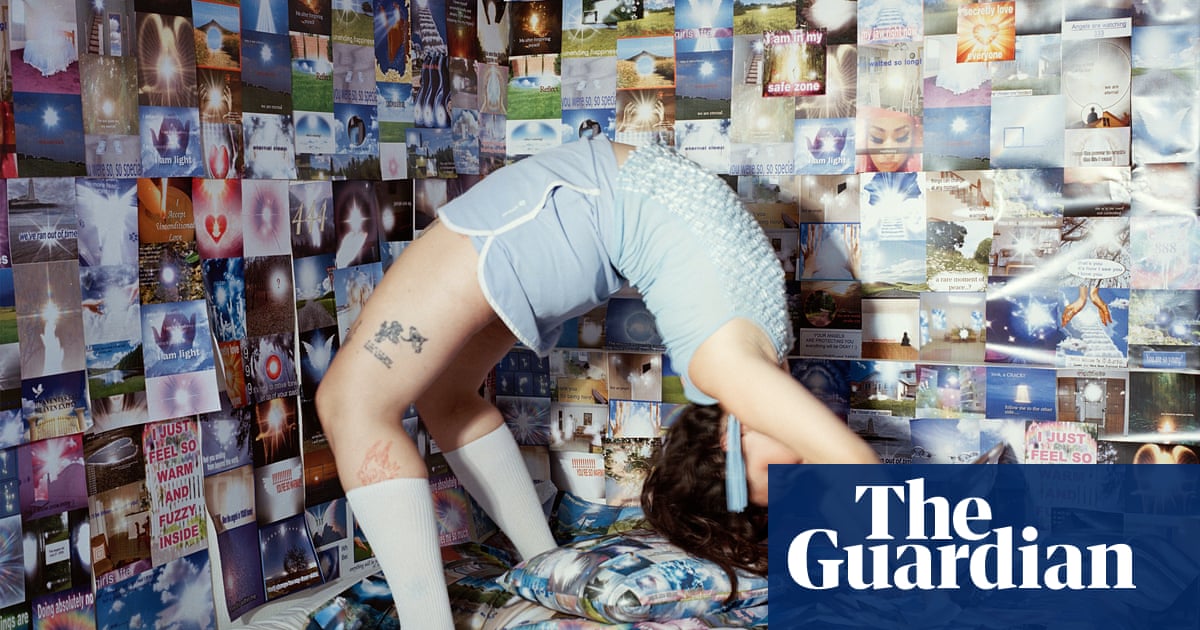Growing up inColombia– and online – has defined the way I create art: my identity has been formed by a country riddled with superficial and conservative values; a happy country but also one of the most violent; a country where men pray to virgins and kill the ones who are not.
The internet felt like a safe space where I could be anyone – as a vulnerable young girl who felt out of place where I lived, it helped me define my personality and interests but it also alienated me from the real world and made me hyper aware of the way I looked and existed.
After leaving home and living by myself for the first time in 2023, I developed an obsession with online self-help culture, particularly pseudo-spiritual content under the hashtag Lucky Girl Syndrome – TikToks about getting your dream life if you listen to specific audio tracks that featured elements such as “layered frequencies”, soft synths, reversed whispers and spoken affirmations. Users post clips with text saying things like: “If you hear this, you’re entering a new chapter. Expect blessings within 24h.”
I wanted to be this lucky girl who gets everything she wishes for if only she follows these rituals properly. A part of me did it ironically, but a part of me truly felt it.
Sign up toHer Stage
Hear directly from incredible women from around the world on the issues that matter most to them – from the climate crisis to the arts to sport
after newsletter promotion
This image is part of my project, Lucky Girl Syndrome, which grew out of this deep dive into self-help online: I wanted to play with this obsession in order to detach myself from it. I created a mood board in my bedroom, covering the walls in printouts of affirmations I found online. Some of them were heartfelt, some of them came from meme pages that satirised the culture: “I am in my safe zone”; “I am not clenching my jaw right now”; “Angels are watching 333”; “I am light”; “CLICK to be saved”.
I noticed these images of affirmations were usually paired with light orbs. These orbs look like how we want to feel: weightless, golden, gentle, magical, powerful and limitless. I wanted to create a theatre-like set where I could portray myself embodying different kinds of lucky girls – this is the yogi lucky girl who bends over backwards for luck.
The Lucky Girl Syndrome project is an interrogation of the economy of hope where girls like me find solace in using our devices and bedrooms as portals to wellness and self improvement. But it’s also part of my wider body of work where I am interested in questioning who and what the female form exists to serve. Growing up in a culture where our beauty is our worth, so much so that cosmetic surgery is normalised but Catholic morality still dictates ideas of gender roles, family and sexuality, I became attuned to how online self-help culture repackages control as empowerment, especially for women.
Isabella Madridis a Colombian artist and photographer
